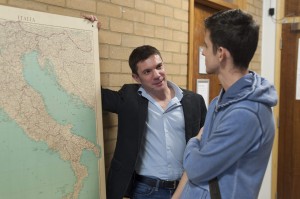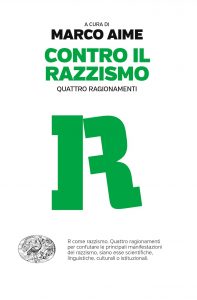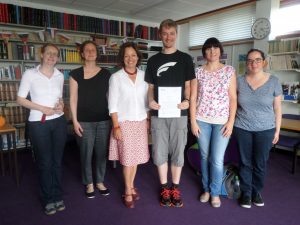You never know where a degree in Modern Languages will take you. Lora Jury, who graduated from the University of Reading in 2015 with a BA in English Literature and Italian, is now in the United States, where she won a Fellowship to pursue a Masters in Italian Studies at the University of Oregon. With the opportunities that a University of Reading degree provides, many of our alumni go on to pursue post-graduate studies, often here at Reading, but also at other universities throughout the UK, and often much further afield. We’ve asked Lora to let us know how she wound up in Oregon and how she’s getting on in her studies. Here’s what she had to say:

Lora Jury, graduating from the University of Reading in 2015 with a degree in degree in English Literature and Italian
“I first began learning Italian at the University of Reading in 2011, and at the start it felt like the most difficult challenge of my life. Before coming to university, I’d attended a state school and a sixth form college in South Wales, and I’d never studied a foreign language, apart from three years of French and German at secondary school. I’d never studied any Italian and I could not profess to be proficient in any language other than English. Just five years later, I’m now teaching Italian at the University of Oregon, USA!
Whilst at the University of Reading I undertook a whole range of courses in Italian language, history, politics, intellectual history, and literature. I found Reading’s Department of Modern Languages and European Studies to be an environment in which I could really develop as an independent thinker. The kinds of assessments I was set by my Italian lecturers encouraged me to develop my own research topics, and also acted as a kind of exercise in learning the rubric of academia (proofreading, citing, creating a bibliography etc.) The most unique opportunity for me was being able to take up a foreign language without having any prior qualifications – if it wasn’t for my decision to learn Italian at Reading, I simply wouldn’t be where I am today.
During my final year at the University of Reading I followed a course on Modern Italian Poetry with Dr Daniela La Penna, and that’s when my love for Italian literature really began to develop and flourish. When Dr La Penna recommended me as an applicant to the University of Oregon’s MA programme, I was full of doubts. Still, even as I wondered whether I would be admitted to this competitive programme, I went ahead with my application. To my great surprise I was offered a prestigious Graduate Teaching Fellowship in Italian Studies. This means that, while I pursue my MA in Italian language and literature at the University of Oregon, all my fees are paid for! I also receive a monthly stipend, which pays for all of my living expenses, as well as health insurance and a whole range of other benefits as well. In exchange, I teach Italian language courses to undergraduate students at the university.

Lora Jury is now pursuing an MA in Italian Studies and teaching Italian language at the University of Oregon, USA
Pursuing a Masters Degree in the US has been an amazing experience, but it’s not for the faint hearted. This is much more than another Erasmus year. It’s the act of transferring one’s whole life to the other side of the planet, and not only learning as a student but also developing as a professional and an academic. At times my colleagues and I work under intense pressures, given that we are teachers and post-graduate students at the same time. Even so, this first year has been great. I’ve learned an unfathomable amount.
My studies in literature and language at the University of Reading definitely gave me an advantage when it came to studying for my MA at the University of Oregon. Some candidates may initially struggle when it comes to the deep analytical and theoretical work, but I definitely never felt this pressure. The courses I took at Reading were particularly rigorous, allowing me already to engage with some of the material I now work with as a post-graduate. I also think that a lot of our assignments had a practical application – for example we were often assessed on the presentation of our research at the undergraduate level, and this is now a crucial part of my everyday work. Studying at Reading taught me to be a confident and vocal young thinker; my lecturers inspired me with the notion to question absolutely everything, to think radically, and this philosophy has always added new elements to my work.

Lora Jury, enjoying life inside and outside the classroom in Oregon
Like Reading, Oregon provides a really comprehensive and well-rounded education. I’m incredibly grateful that I have the opportunity to work for all of this and not to have to pay for my Masters programme. I still have one year left, in which I’ll take four more courses in Italian Studies, as well as two four hour exams, while also presenting my research at a post-graduate forum, completing an MA thesis, and reading around forty books. It sounds like an awful lot when I put it like that! But I love it. My professors in Oregon are incredible people. They only encourage the very best from their students. Plus, working in Oregon has opened up other opportunities as well: the Department of Romance Languages will fund my summer studying at a language school in Sorrento, Italy, where I’ll also work on a research project I’ll then present back in Oregon at the Graduate Student Research Forum in the Fall.
Studying in the States has opened up a wealth of opportunities to me. For instance, earlier this year I presented a paper on Italian Neorealist Cinema at a conference at the University of Wisconsin, and I’m hoping to do this again in New York in October. I am also going to apply for PhD in Culture and Theory at UC Irvine, and this is something which I simply would have never considered had I never gotten the opportunity to study at two great institutions like the University of Reading and the University of Oregon. I’ve been able to meet and network with a lot of exceptional academics and to learn more about their research, which also helps me to think about what I would like to research and where I would like to conduct my investigations.
There are so many advantages to being a part of this unbelievable experience. Most days I wake up and can’t believe that this is my life! But I intend to find a PhD programme in the States after finishing my masters.

The 2016 graduates of the Department of Modern Languages and European Studies at the University of Reading. You never know where a languages degree will lead you.
I definitely believe that other Reading students could follow in my footsteps. As a woman I feel that we are sometimes conditioned to believe that the positions of success and power are not reserved for us, but the role models I had at the University of Reading were testament to the contrary. The Department of Modern Languages and European Studies has a large population of female students, and I believe that we should encourage these young women to aim high. There are so many opportunities here in the US within academia, and I know that students at Reading are well prepared to compete in this market.”
To learn more about how competitive you can be with a degree in French, German, Italian, or Spanish from the University of Reading, check out our careers page. Be sure to follow our blog, like us on Facebook, and subscribe to our Twitter feed, too, so that you can keep up on all the news and events of the Department of Modern Languages and European Studies at the University of Reading.
If you’re a Reading graduate, we’d love to hear from you about your career choices after university. Tell us your story. The University of Reading publishes alumni profiles online. If you’d like to share your experiences, all you have to do is fill out an online questionnaire.
When you do, please consider submitting your story for the “Meet a Reading Graduate” section of our departmental blog.
If you’d like to tell us where your Reading degree has taken you, and perhaps to share a few memories of the department, please get in touch with our Alumni Officer, Dr Veronica Heath. And please consider joining the University’s Thrive Mentoring Scheme to help our students make their transition into the world after graduation.
And remember to subscribe to our blog:
[subscribe2]






 Chris Flach, Second year student of Law with Legal Studies in Europe and German Studies, was awarded for his extraordinary enthusiasm in engaging with and supporting the Department of Modern Languages and European Studies. Throughout his two years at Reading, he showed his enormous interest, dedication and commitment for the German language in particular and the Department as a whole by promoting Modern Languages as a student ambassador, being involved in Outreach and Teach meet events, creating a departmental video workshop, playing a leading role in the German Drama Group and being actively engaged in all other extracurricular events and activities of German Studies. The Department has highly appreciated his outstanding support and is wishing him the best of luck for his year abroad at the University of Trier in Germany.
Chris Flach, Second year student of Law with Legal Studies in Europe and German Studies, was awarded for his extraordinary enthusiasm in engaging with and supporting the Department of Modern Languages and European Studies. Throughout his two years at Reading, he showed his enormous interest, dedication and commitment for the German language in particular and the Department as a whole by promoting Modern Languages as a student ambassador, being involved in Outreach and Teach meet events, creating a departmental video workshop, playing a leading role in the German Drama Group and being actively engaged in all other extracurricular events and activities of German Studies. The Department has highly appreciated his outstanding support and is wishing him the best of luck for his year abroad at the University of Trier in Germany. learning the language from scratch, but going on to complete the degree at the same level of knowledge and fluency as students who might have a GCSE or A-Level in that language. They are far from being a new phenomenon. It has always been common for language students to pick up another language at degree level. Having more than one language improves your employability in competitive fields such as language teaching, and translating/ interpreting.
learning the language from scratch, but going on to complete the degree at the same level of knowledge and fluency as students who might have a GCSE or A-Level in that language. They are far from being a new phenomenon. It has always been common for language students to pick up another language at degree level. Having more than one language improves your employability in competitive fields such as language teaching, and translating/ interpreting.